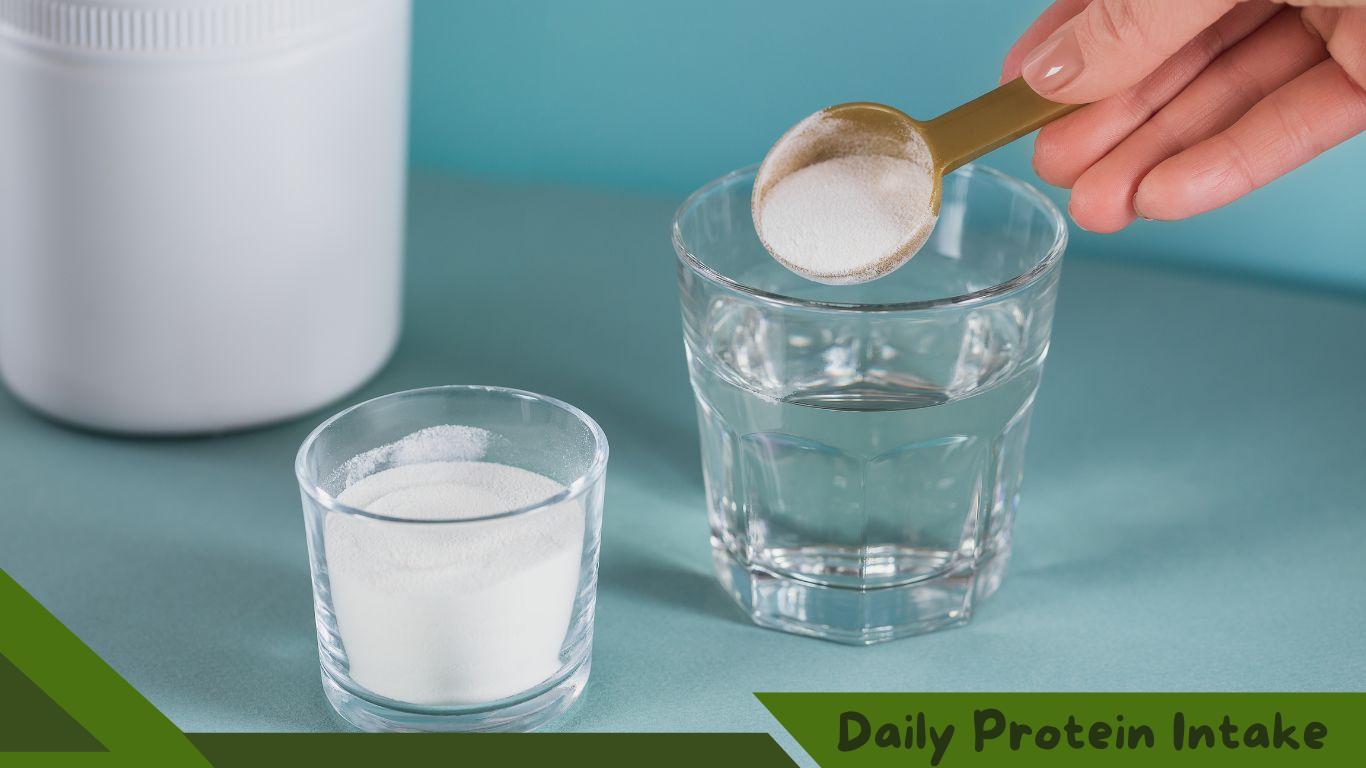The Link Between Protein Intake and Overall Health

Protein is important for body growth, repair, and maintenance. Many body processes need it. It helps make enzymes, hormones, and other things. Having enough protein is important for good health. It’s a key part of a healthy diet. This article will discuss how protein affects your health. You’ll learn some tips to help make sure you eat enough protein.
What is Protein and Why is it Important?
Our bodies require three macronutrients to work well, and one of them is protein. It is made up of amino acids, the building blocks of all tissues in the body. Our body needs 20 types of amino acids. Some we can make ourselves, but we need to eat certain foods to get the others. Protein is very important for the body to grow and heal. It also helps make enzymes, hormones, and other important things that the body needs. Maintaining a healthy immune system and strong bones is crucial.
The Recommended Daily Intake of Protein
The amount of protein you need each day depends on your age, sex, weight, and activity level. For adults, the amount of protein recommended for a day is 0.8 grams per kilogram of body weight. Athletes and active people may require extra protein for muscle growth and repair. A general guideline is to consume between 1.2 to 1.7 grams of protein per kilogram of body weight per day.
The Benefits of Consuming Adequate Protein
Consuming adequate protein has many benefits for overall health. Here are some of the key benefits: .
Builds and Repairs Tissues
Protein is essential for building and repairing body tissues. After exercise or injury, your body needs amino acids to repair and build muscle tissue. Protein is also important for the growth and maintenance of skin, hair, and nails.
Boosts Metabolism
Protein takes more energy to digest and metabolize compared to carbs or fat. This is known as its higher thermic effect. This can help to boost metabolism and promote weight loss.
Controls Appetite
Protein satisfies hunger more than carbs or fat. It makes you feel full, controls cravings, and reduces appetite. This can be beneficial for weight management.
Maintains Bone Health
Protein is needed for strong bones since it builds and fixes the bone tissue. Eating enough protein can lower the chance of osteoporosis and other bone problems.
Supports Immune Function
Protein is important. It helps make antibodies that support the immune system. Antibodies help fight infections and diseases.
Promotes Heart Health
Eating enough protein can lower the chance of heart disease by making blood pressure and cholesterol better. Foods like fish, chicken, and legumes with good protein are linked to a lower risk of heart problems.
Reduces the Risk of Type 2 Diabetes
Consuming adequate protein can also help to reduce the risk of type 2 diabetes. Protein affects blood sugar less than carbs. Eating good protein can improve insulin sensitivity and blood sugar control.
The Risks of Not Consuming Enough Protein
Not consuming enough protein can have negative consequences for overall health. Protein deficiency can cause muscle loss, weak immunity, and slow healing. In severe cases, it can even lead to organ failure and death.
How to Ensure You Are Getting Enough Protein
Here are some tips to ensure you are getting enough protein in your diet:
Choose High-Quality Protein Sources
Opt for healthy protein sources like lean meats, fish, eggs, dairy, legumes, and nuts. These foods provide all the essential amino acids needed for optimal health.
Spread Protein Intake Throughout the Day
Protein is best absorbed by the muscles when it is consumed throughout the day. Aim to consume 20-30 grams of protein at each meal or snack.
Supplement with Protein Powder
If you can’t get enough protein from food, try using protein powder as a supplement. Many protein powders exist, such as whey, casein, and plant-based ones.
Consider Your Lifestyle and Dietary Needs
Consider your lifestyle and dietary needs when planning your protein intake. People who exercise often may require extra protein to help their muscles grow and heal. Vegetarians and vegans need to make sure they eat enough protein to get the necessary amino acids.
Conclusion:
Protein is essential for your body and helps it work properly in many ways. Getting enough protein is crucial for good health. It can help your body repair and build tissues, increase metabolism, control hunger, keep bones healthy, boost your immune system, and even prevent type 2 diabetes. To get enough protein in your diet, choose good protein sources, eat protein throughout the day, use protein powder, and think about your needs and lifestyle.
FAQs:
Q1. Can consuming too much protein be harmful?
Yes, consuming too much protein can be harmful. Eating too much protein can harm your kidneys and liver, causing health issues later on. It can also lead to weight gain if consumed in excess of daily energy needs.
Q2. Is it necessary to consume protein supplements to meet your protein needs?
No, it is not necessary to consume protein supplements to meet your protein needs. You can get enough protein from whole foods like lean meats, fish, eggs, dairy, beans, and nuts.
Q3. Can a low-protein diet be beneficial for weight loss?
A diet that’s low in protein may help lose weight fast, but it can harm your health in the long run. Protein is important for the body to work properly. If you don’t get enough protein, you can lose muscle, get sick easier, and take longer to heal from injuries.
Q4. What are some plant-based sources of protein?
There are many plant-based sources of protein. These include beans, lentils, chickpeas, tofu, tempeh, seitan, nuts, and seeds.
Q5. How does protein intake differ between men and women?
Men and women have different protein needs based on weight, activity, and goals. Men need more protein than women because they have bigger bodies and more muscles. Both men and women need enough protein for good health.




